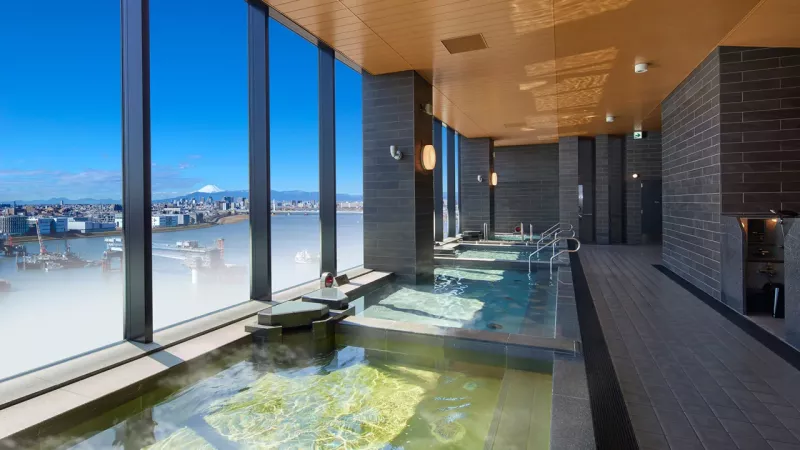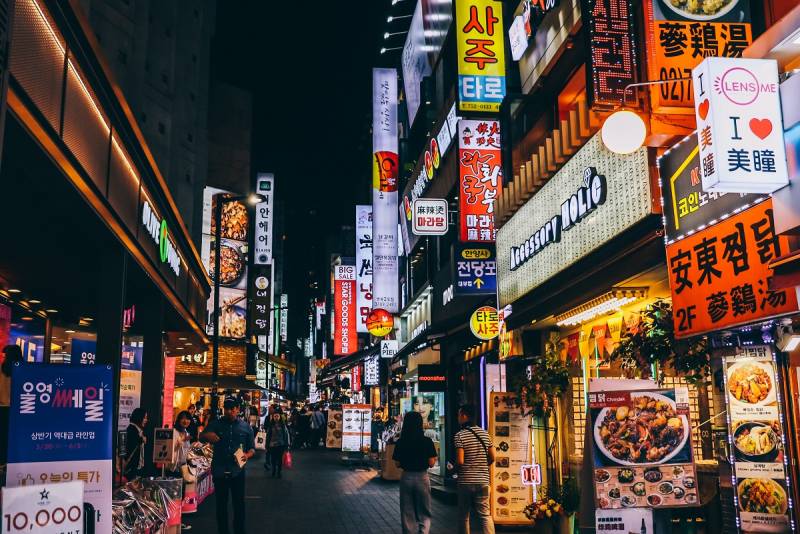Visitors staying at Tokyo Haneda International Airport’s newly opened hotel can enjoy plane-spotting and views of Mount Fuji – all from a rooftop hot spring. Opened last December, the Hotel Villa Fontaine Premier & Grand Haneda Airport has 1,717 rooms and is directly connected to Haneda International Airport Terminal 3. Along with its in-house spa equipped with an indoor and outdoor natural hot spring, it offers everything from an event hall and kid-friendly suites to a gym and restaurants. What makes it unique, according to its developers, is that it’s also part of Haneda Airport Garden, a multipurpose commercial facility and bus terminal built by Japanese real estate company Sumitomo Realty Group. Dubbed a “city where people gather and live,” the complex has some 74 stores spread across two floors that bring together tax-free foods and souvenirs from all four corners of Japan. Here, visitors can pick up everything from chopsticks crafted from broken baseball bats to sweets decorated with Japanese ukiyoe prints after sampling Japanese delicacies in a food hall themed after Japan’s Edo period from 1603 to 1868.
Read Also: Amazon posts $3.2 billion profit as it goes through multiple rounds of layoffs
While tourism to Japan was at a standstill for more than two years following the spread of the Covid-19 pandemic, overseas visitor numbers have steadily climbed since the government resumed visa-free travel for many countries last October. In March, the number of foreign business and leisure visitors climbed to its highest post-pandemic level, around 1.82 million, up from 1.48 million in February, according to data from the Japan National Tourism Organization (JNTO). Tokyo has also announced plans to receive up to 60 million overseas visitors to the country by 2030. The ambitious goal comes as the government expects visitor numbers to continue rising ahead of upcoming international events such as Expo 25 in Osaka in 2025. And as inbound tourism recovers, Haneda – which has been crowned the world’s most punctual mega-airport – hopes to ride that wave.
Ultimately, developers hope their new hotel and airport complex will come to represent a microcosm of Japan’s regional crafts and flavors for overseas travelers and local day trip visitors searching for some rest and relaxation. Currently, those eager to leave the airport can catch a ride from the bus terminal on one of 30 different routes connecting visitors to destinations such as Osaka, Sendai and Hakuba, a ski resort town in Nagano Prefecture. Developers want to expand those routes to greater swathes of Japan as part of broader plans to help revitalize the country’s regions, according to Katsuyuki Tou, general manager of the Haneda Airport Garden. Tou explained that visitors to the multipurpose complex can already get a taste of what Japan offers. For example, they can sample matcha lattes from a green tea shop with a 90-year history or see handmade Japanese craft umbrellas. Next up, developers want to include immersive elements in the visitor experience. “In the future, we’d like visitors to be able to do more than just purchasing or looking at items. For instance, we’d like them to be able to take part in experiences like traditional green tea or sweets-making workshops that spark their curiosity and desire to visit other regions of Japan,” he added. “We aim to help support the revitalization of tourism to Japan, with the Haneda Airport Garden acting as the starting and end point for visitors.”
Haneda Airport Garden is directly connected by train to the Keihin Electric Express Railway Airport Line and is a one-minute walk from Tokyo Monorail Haneda Airport Terminal 3 Station. It is also directly connected to the second floor of Haneda Airport’s Terminal 3.




